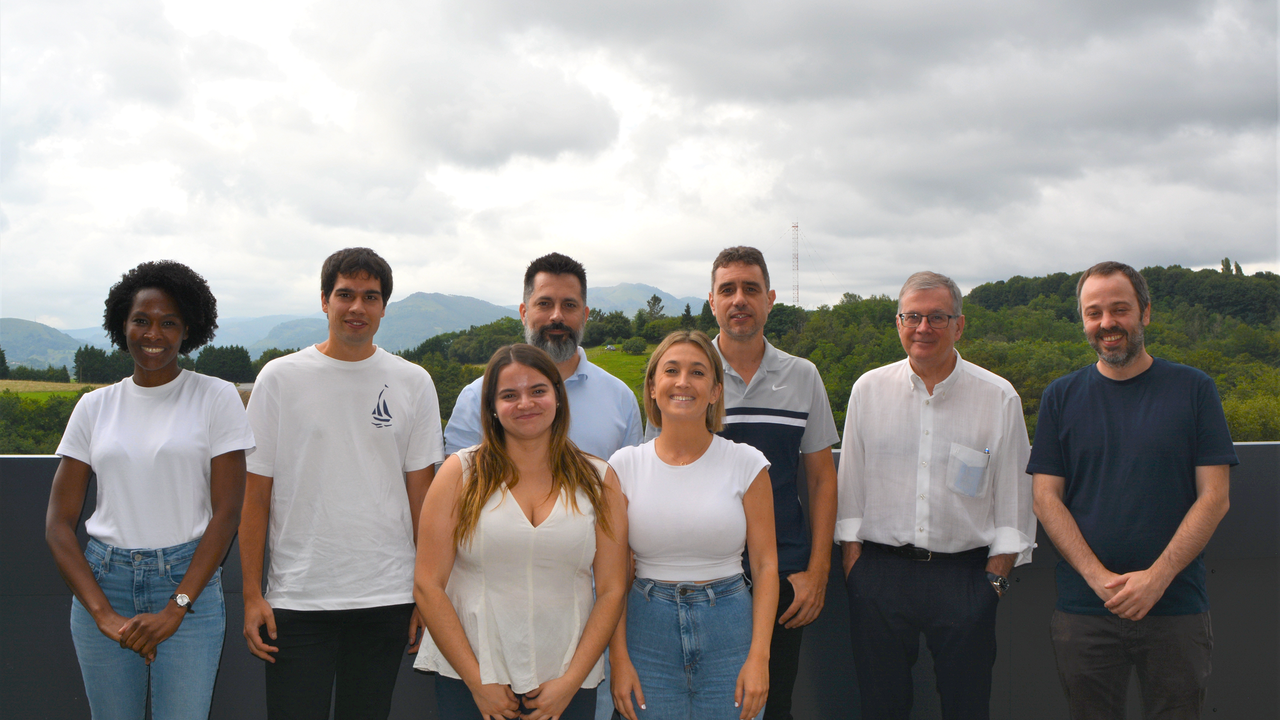New therapeutic pathway found for combatting the most aggressive liver cancer
A multidisciplinary team from the Biogipuzkoa Institute for Health Research, the Department of Health and Osakidetza [Basque Public Health Service], in collaboration with the University of the Basque Country (EHU) and the Donostia International Physics Centre (DIPC), among others, has developed and patented a new chemotherapy formula that has proven to be highly effective against an aggressive type of liver cancer with a very poor prognosis known as cholangiocarcinoma. The study, published recently in the prestigious Journal of Hepatology, opens up new therapeutic possibilities not only for treating cholangiocarcinoma, but also other solid tumours that are resistant to conventional cancer treatments

Cholangiocarcinoma is a heterogeneous group of tumours that develop in the bile ducts. Although regarded as a rare disease, its incidence has increased globally in recent decades. It is the second most common type of liver cancer and, because it is usually diagnosed at an advanced stage, treatment options are limited and mostly palliative, largely due to the high chemoresistance of these tumours.
In this context, this new chemotherapeutic formula is emerging as a promising alternative. The compound has demonstrated a remarkable capability for reducing the survival of human tumour cells and slowing tumour growth in animal models, even in cases where the disease no longer responds to conventional treatments.
What is more, preclinical studies conducted to date support its safety profile, as no toxic effects have been observed at therapeutic doses. As the coordinators of the study Dr Jesús Bañales, head of the Biogipuzkoa Liver Diseases Group, and Dr Fernando Cossío, Professor at the University of the Basque Country and scientific director of Ikerbasque. were keen to point out: “Our compounds constitute a new therapeutic pathway offering huge potential in the fight against cancer. Their capacity to overcome resistance to current treatments could be particularly important for patients without effective alternatives”.
According to Iván Rivilla, an Ikerbasque Research Associate Professor at the Donostia International Physics Center (DIPC) and who has actively collaborated in both the design and synthesis of this compound, “this work has not only constituted a significant scientific advance, but has also contributed to academic training, giving rise to two PhD theses”. “It has been a real challenge involving a continuous process of trial and error until we achieved the right chemical structure capable of opening up a new family of platinum complexes,” he added.
This finding highlights the potential of this solution as a promising therapy for future phases of clinical development, with the hope that it can be evaluated in clinical trials with patients in the near future.
The research was led by Irene Olaizola, PhD in biomedical research, and Jesús Bañales, head of the Liver Diseases Group, both from Biogipuzkoa, and Fernando Cossío, Professor of Organic Chemistry at the EHU. It was funded by the Basque Government's Department of Health, the Ikerbasque Foundation, the Carlos III Institute of Health and CIBERehd. Researchers from national and international centres, including the Donostia International Physics Centre (DIPC) and the University of Glasgow (United Kingdom), in addition to the University of Salamanca as part of the intra-CIBERehd consortium participated in the study.
Publication reference
Irene Olaizola, Mikel Odriozola-Gimeno, Paula Olaizola, Francisco J. Caballero-Camino, Noelia Pastor-Toyos, Mireia Tena-Garitaonaindia, Ainhoa Lapitz, Beatriz Val, Amanda R. Guimaraes, Maitane Asensio, Maider Huici-Izagirre, Colin Rae, David de Sancho, Xabier Lopez, Pedro M. Rodrigues, Elisa Herraez, Oscar Briz, Laura Izquierdo-Sanchez, Aitziber Eleta-Lopez, Alexander M. Bittner, Ana Martinez-Amesti, Teresa Miranda, Sumera I. Ilyas, Chiara Braconi, Maria J. Perugorria, Luis Bujanda, Iván Rivilla, Jose J.G. Marin, Fernando P. Cossío, Jesus M. Banales.
New platinum derivatives selectively cause double-strand DNA breaks and death in naïve and cisplatin-resistant cholangiocarcinomas
Journal of Hepatology (2025)
DOI: 10.1016/j.jhep.2025.04.034
